Literacy Learning Laboratory
The Learning Lab is designed to assist and promote training for educators, families, and caregivers to better understand the characteristics of evidence-based interventions and accommodations for dyslexia, related disorders, dyscalculia, and dysgraphia. The Literacy Learning Laboratory has been developed by RIDE in accordance with the Rhode Island Right to Read Act.
2025 Learning Lab Expert Speaker Series for Educators and Families
Dysgraphia 101: What It Is, How to Spot It, and Why It Matters
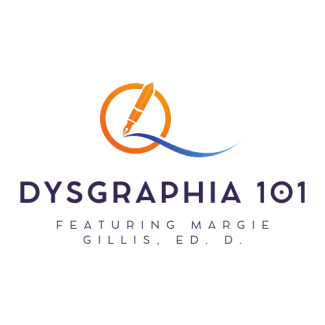
Featuring Margie Gillis, Ed.D
According to the International Dyslexia Association (IDA), dysgraphia is a learning disability that affects a person's ability to acquire and use written language. Dysgraphia frequently co-occurs with dyslexia but identifying it can be a sticky issue. In this session, Margie Gillis, Ed.D will help participants develop a working understanding of the features of dysgraphia and provide strategies for supporting these students in a practical way both in the classroom and home settings.
Supporting the Development of Mathematical Language Using High Intensity Instructional Techniques
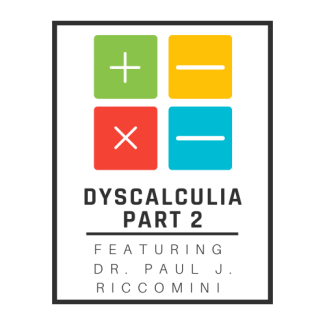
Featuring Dr. Paul J. Riccomini
Join us for a virtual professional development session focused on supporting students with dyslexia, dyscalculia, and dysgraphia in the mathematics classroom. During this session, you will learn how to use specific techniques to develop mathematical language in learners, from building vocabulary to fostering verbal and written reasoning. Specifically, we will learn how to use and when to apply specific techniques such as the Frayer models, and scaffolded reasoning for writing to bolster mathematical language development.
Using High Intensity Instructional Techniques to Enhance Retention in the Mathematics Classroom for Students with Dyscalculia
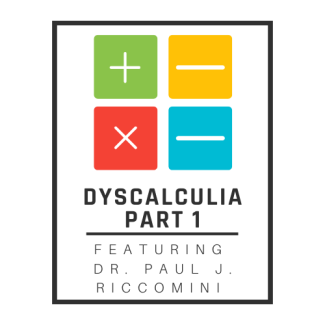
Featuring Dr. Paul J. Riccomini
Join us for the second session in the RIDE Learning Lab series for Educators and Families. Featuring Dr. Paul J. Riccomini, this will be a dynamic and interactive virtual professional development session focused on supporting students with dyscalculia. This session is focused on equipping educators with three powerful retention strategies to support student retention of essential mathematical concepts and skills throughout the academic year. During this session, participants will delve into the cognitive processes involved in informing retention, gaining a deeper understanding of specific techniques that can effectively support long term retention of information for all students and specifically students with a dyscalculia diagnosis.
Supporting All Learners with Access to HQCM through UDL
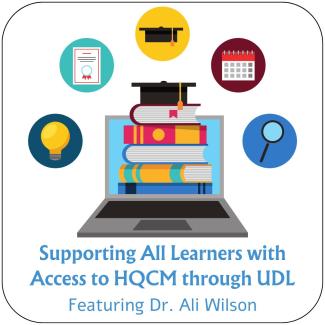
Featuring Dr. Ali Wilson
Join us for a virtual professional development session with Dr. Ali Wilson focused on supporting students with dyslexia, dyscalculia, and dysgraphia in core instruction using high quality curriculum materials.
During this session, participants will deepen their understanding of the role HQCM plays to support all learners, especially those with specific learning disabilities, such as dysgraphia, dyslexia and dyscalculia. Through a series of activities, including case studies, participants will gain a deeper understanding of the Universal Design for Learning framework and how such an approach can deepen access and success for students with dysgraphia, dyscalculia and dyslexia.
This session is intended for all audiences, but activities and case studies will focus on secondary settings.
Implementing Powerful Dyslexia Intervention for Multilingual Students
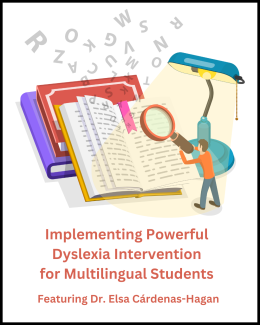
Join us for a virtual professional development session with Dr. Elsa Cardenas-Hagan, focused on supporting multilingual students with dyslexia. This session will provide an overview of the research and best practice connected to supporting students who are multilingual and also have a dyslexia diagnosis.
During this session, participants will explore the different domains of literacy and learn how to implement best practice from a teaching and leadership perspective. They will leave with ready-to-implement strategies to support literacy instruction for MLL students with reading difficulties. Additionally, participants will be equipped with key “look-fors” to ensure that multilingual students receive research-based intervention aligned to the Science of Reading and Structured Literacy.
This session is intended for all audiences, but activities will be most relevant for educators and school leaders.
Oral Language Development and Educational Success
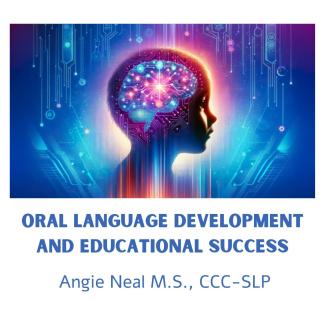
Join us for a virtual professional development session with Angie Neal M.S., CCC-SLP to learn more about the role of conversation and play in children's literacy development.
This workshop delves into the various obstacles that can impede language development in children, particularly those in PreK–5th grade. Participants will explore how early experiences—both at home and in school—shape language acquisition, with an emphasis on the critical roles of conversation and play. Drawing on current research, the session will examine factors that impact language growth. Educators and families will gain practical strategies to foster meaningful communication and support language development for all students, including those with diverse learning needs.
This session is intended for all audiences but will primarily focus on oral language development in PreK- 5th grade children.
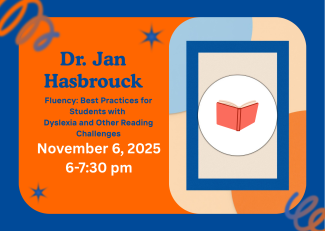
Questions about the webinar series?
Please contact Arielle Hollander of Blue Ribbon Coaching and Consulting, Inc. with any questions about the webinar series or registration at arielle@blueribboncc.org.
